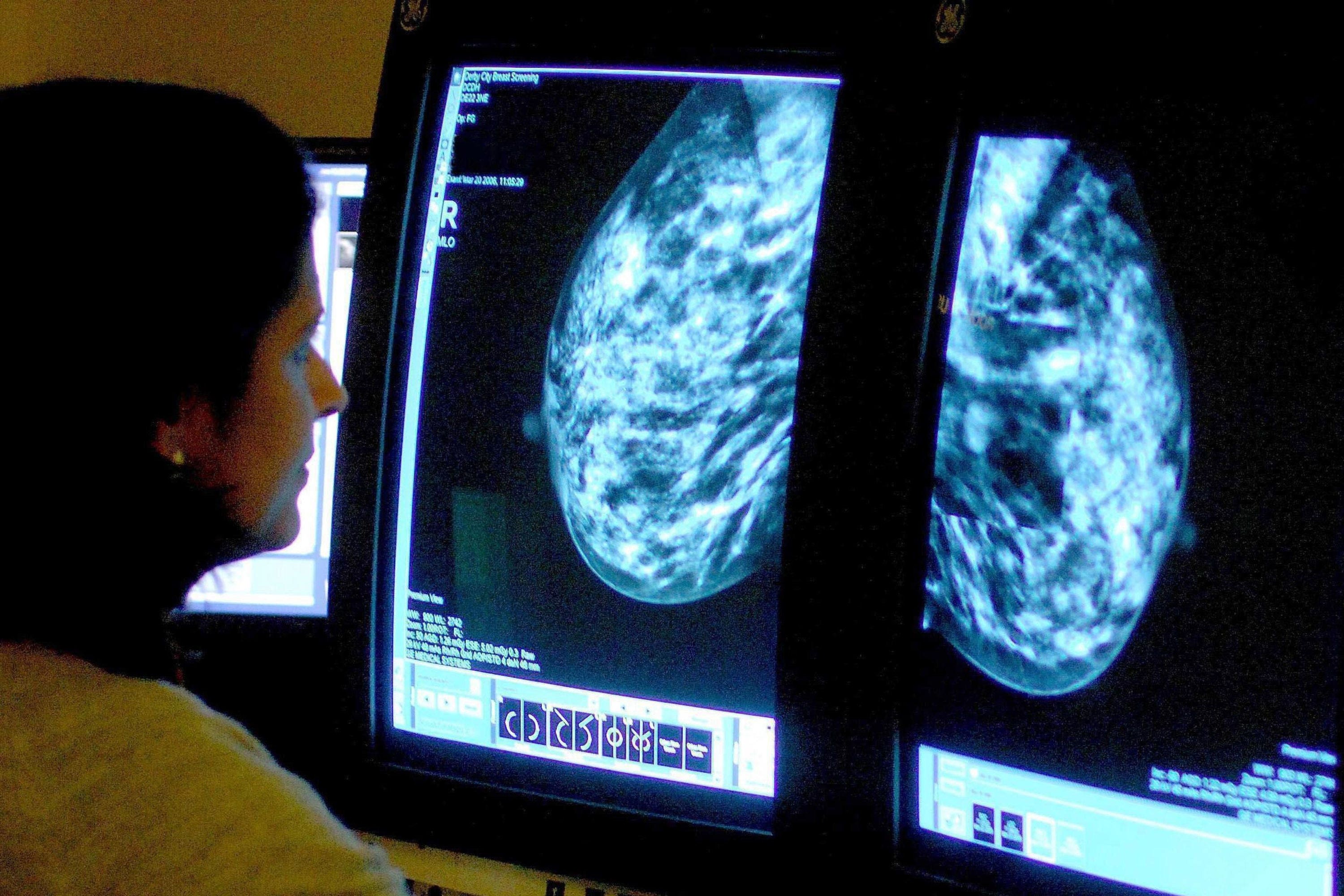Trial to see if precision proton beam therapy can benefit breast cancer patients
It is hoped the move could benefit a small number of patients who may have complications from traditional radiotherpay treatment.

UK scientists have launched a proton beam therapy trial to assess whether the precision treatment can help breast cancer patients.
Researchers want to examine whether certain patients would benefit from the treatment over traditional radiotherapy.
A small number of breast cancer patients are at greater risk of long-term heart problems after having traditional radiotherapy.
It is hoped that offering these patients proton beam therapy – which can target radiotherapy beams more precisely – will deliver enough radiotherapy to breast tissue while minimising “off-target” radiation to the heart.
Every year some 30,000 breast cancer patients in the UK are offered radiotherapy following surgery.
Standard radiotherapy uses high energy x-rays to destroy cancer cells and reduce the chance of the disease returning.
The treatment is effective for the vast majority of patients but for less than 1% of people treated, traditional radiotherapy can lead to heart problems later in life.
This is usually because the breast tissue and the lymph nodes which require radiotherapy treatment are located close to the heart, or because the patient already has an underlying increased risk of heart problems.
As a result, scientists want to assess whether these patients will benefit from Proton beam therapy using charged particles instead of x-rays to target tumours more precisely.
It is hoped that using this treatment will minimise the amount of radiation delivered to the heart during traditional treatment, while still targeting the cancerous cells.
Standard breast radiotherapy is really effective for most people with very few side effects, but there is a small group of patients for whom proton beam therapy may be a better option.
Almost 200 patients will take part in the trial, which is being led by researchers at the University of Cambridge, The Institute of Cancer Research, London and The Royal Marsden NHS Foundation Trust.
Those who are offered proton beam therapy will be treated at The Christie NHS Foundation Trust in Manchester, or University College London Hospitals NHS Foundation Trust, with those travelling far from home offered accommodation.
The trial will measure radiation dose delivered to the heart as an early predictor of possible heart problems, avoiding the need for years of follow-up.
“Although only a very small group of people are affected by a higher risk of heart problems later in life, it can still be a serious issue,” said trial chief investigator Professor Charlotte Coles, from the University of Cambridge.
“Most patients treated with radiotherapy have decades of healthy life ahead of them and we need to do everything we can to avoid possible future heart problems related to treatment.
“Standard breast radiotherapy is really effective for most people with very few side effects, but there is a small group of patients for whom proton beam therapy may be a better option.”
We hope that the PARABLE trial will help us to further personalise radiotherapy treatments and ensure that people can access the radiotherapy approach that is best for them, regardless of where they live
Professor Judith Bliss, from The Institute of Cancer Research, London, added: “We’re delighted to launch the PARABLE trial to put proton beam therapy to the test and determine whether it has benefits over standard radiotherapy in a group of people who may need more targeted treatment.
“The PARABLE trial will measure average dose of radiotherapy delivered to the heart to predict long-term heart damage. Using this early predictor will allow us to uncover the potential benefits of using proton beam therapy for long term heart health in years rather than decades.”
Dr Anna Kirby, consultant clinical oncologist at the Royal Marsden NHS Foundation Trust, added: “We hope that the PARABLE trial will help us to further personalise radiotherapy treatments and ensure that people can access the radiotherapy approach that is best for them, regardless of where they live.”
Dr Kotryna Temcinaite, senior research communications manager at Breast Cancer Now, added: “If the PARABLE trial shows that proton beam therapy works better than standard radiotherapy for these people, it could pave the way for this treatment being made available through the NHS for those who need it.”
– The PARABLE trial has been funded by the National Institute for Health and Care Research and the Medical Research Council.
Bookmark popover
Removed from bookmarks